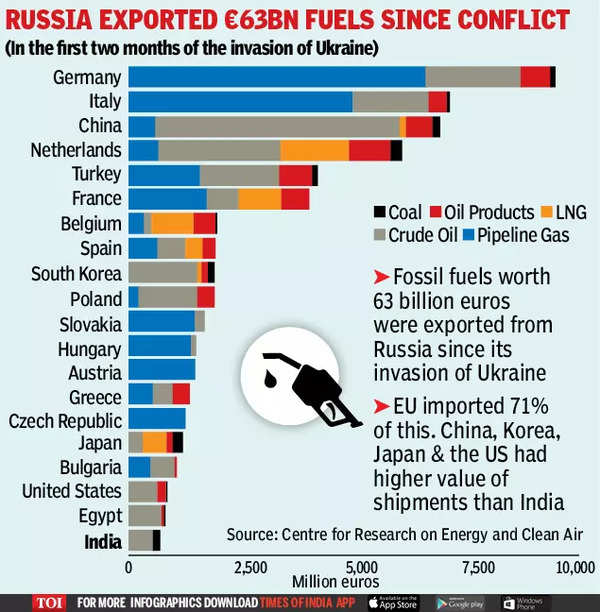By K Raveendran
The world believes that the success of western sanctions against Putin’s Russia depends on just two countries: India and China. On the face of it, it would appear to be a straightforward positioning. For, much of the Russian oil that has been made redundant by the sanctions is expected to flow to these two countries.
India has already made it clear that it is not an India-specific issue and asserted that its procurement of Russian crude is guided by its energy security considerations and that therefore everything is above board. This is no doubt, a bold defence, which the western nations will have difficulty in accepting, but nevertheless is close to what they have been doing themselves when it came to securing of economic interests.
In spite of President Joe Biden’s best efforts, it has not been possible to bring all European nations on the same page in wholeheartedly implementing the sanctions. Instead, the EU has been looking for exit routes that will not appear to bust the sanctions, and yet ensures continued supply of Russian energy, without which some of the European countries cannot manage in the short to medium term.
The European Commission has issued new guidance on how EU companies can pay for Russian gas in roubles without violating sanctions. A month previously to that, the European Commission had ruled that gas payments to Russia by European companies in roubles would be a violation of sanctions. But the latest guidance says European companies can make payments to Russia by fulfilling certain conditions. This will be achieved through the companies opening an account in a bank designated by Russia for the payments. However, these payments can only be made in the currency agreed on in their existing contracts and the companies will be required to make a ‘declaration’ to the effect that the payments are for fulfilling the contractual obligations.
New Delhi has drawn parallel from these European positions and asserted that its approach is guided by energy security considerations and cited policy decisions taken by many countries with a ‘similar perspective’.
The western capitals have been showing disquiet with India’s stand on the Russian invasion of Ukraine, which is to call immediate cessation of hostilities and resolution of the problem through dialogue and diplomacy. The western capitals are unable to come up with a strong counter argument as they themselves have been trying to flout their political stand in favour of economic interests through ‘practical’ measures.
President Biden, spearheading the campaign against Putin, knows the limitations of the situation and is therefore reconciled to the fact that he cannot carry the allies along his preferred lines of action due to the complexities of the prevailing energy paradigms.
Biden achieved a face-saving concession the other day from Saudi Arabia, the relations with which have been under strain of late due to the tough position taken by Crown Prince Bin Salman, who is reported to have even refused to attend phone calls from the president.
Saudi Arabia has made it clear that it is now prepared to raise its oil production if Russia’s output falls substantially because of the western sanctions. This follows discussions between and among the counties involved, and the deal has been announced as a package from the oil cartel OPEC, led by Riyadh and to some extent Moscow. Under the deal, both Saudi Arabia and the United Arab Emirates will increase crude output with immediate effect.
The Saudi administration, which is firmly under the control of the crown prince, had earlier rebuffed calls by Washington to boost oil output by more than the gradual increases as set forth by OPEC. The softening of the Saudi stand is obviously part of a rapprochement with the Biden administration in view of his forthcoming trip to the oil kingdom. (IPA Service)

 Workers, Small Traders, Enterprises, And Farmers Rendered Destitute
Workers, Small Traders, Enterprises, And Farmers Rendered Destitute 